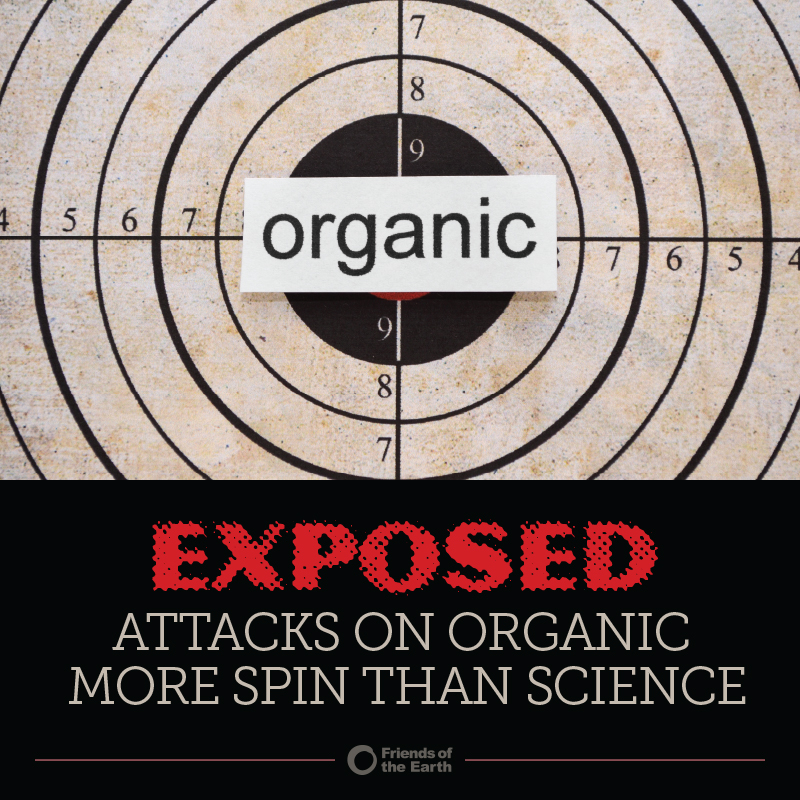
More spin than science: The latest efforts to take down organics
A new piece by senior program manager Kari Hamerschlag, posted at Civil Eats, takes a look at recent attempts to smear organics. Below is an excerpt — you can read the piece in its entirety here on Civil Eats.
Several weeks ago, a group called Academics Review published a report harshly attacking the organic industry and its nonprofit allies for what they called “deceptive marketing practices,” designed to instill “false and misleading consumer health and safety perceptions about competing conventional foods.” The study also implicates the U.S. Department of Agriculture as a willing partner that allows companies to use their sanctioned organic label to deliver fear-mongering messages about the dangers of industrial food.
And while most coverage of the study appeared in small and agriculture-focused publications, some other sources, like the New York Post and Food Safety News, picked up the story without much in-depth research about its source. The headlines–“Report: Organic Industry Achieved 25 Years of Fast Growth Through Fear and Deception” and “The Organic Industry Has Been Fibbing All Along”–were especially alarming.
But the more important questions here, and ones overlooked by the glaring headlines, is who is behind the Academic Review and how might they benefit from dragging organics through the mud?
…
While it is true that health is among the top concerns of organic consumers, the Academics Review article conveniently ignored the environmental benefits that also drive the choice for many. Numerous studies have shown the farmworker, soil health, water quality, and climate benefits of organic agriculture. For example, a recent Oxford University study found that “organic farms support 34 percent more plant, insect, and animal species than conventional farms,” including important pollinators.
Contrary to the oft-repeated refrain that we need GMOs to feed the world, this important Atlantic Monthly article by Barry Estabrook cites numerous studies suggesting that organic agriculture has the best potential to feed people in a way that protects our critical natural resources, including the 2011 landmark U.N. Report, Agro-ecology and the Right to Food.
As U.N. Special Rappateur Olivier De Shutter, the author of the report, said: “Today’s scientific evidence demonstrates that agro-ecological methods outperform the use of chemical fertilizers in boosting food production where the hungry live—especially in unfavorable environments.” He added, “Conventional farming relies on expensive inputs, fuels climate change, and is not resilient to climatic shocks. It simply is not the best choice anymore today.”
Related Posts
Ways to Support Our Work

Read Latest News
Stay informed and inspired. Read our latest press releases to see how we’re making a difference for the planet.

See Our Impact
See the real wins your support made possible. Read about the campaign wins we’ve fought for and won together.

Donate Today
Help power change. It takes support from environmental champions like you to build a more healthy and just world.